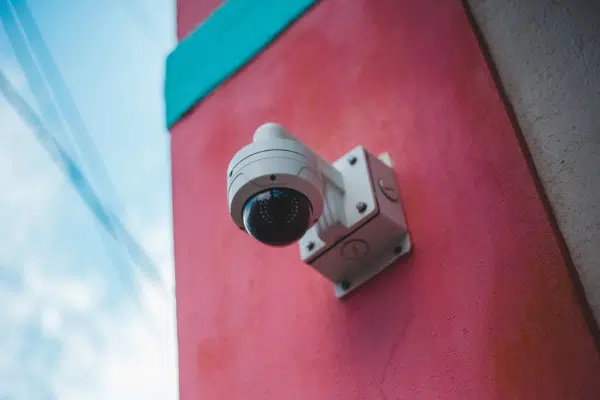
Cities in South Africa are blowing millions on surveillance networks – but are they even working?
South Africa’s municipalities are spending millions of rands on costly closed-circuit television (CCTV) systems as part of their crime prevention strategies – but a new policy brief from researchers at the South African Cities Network (SACN) questions whether these tools are effective.
According to the SACN researchers, CCTV systems have been adopted across the board as one of the ‘best tools’ to combat South Africa’s incredibly high crime levels.
They have been sold on the idea that mass surveillance, and the promised future of AI profiling, is the key to fighting crime.
“In a recent study conducted on biometric surveillance in Kenya and South Africa, governments, international organisations and the private sector were found to be the key drivers of biometric surveillance, investing in CCTV with the intention of protecting their property from crime and violence,” the SACN said.
This has led to a pervasive view that CCTV systems reduce crime, assist with investigations and arrests, and despite the cost, provide unquestionable value.
However, the SACN said that there has been very little in the way of any evidence to this effect in South Africa – and that’s even before mentioning the privacy concerns involved, and how this might be in conflict with the country’s new POPIA laws.
The policy brief highlights several issues with the spread of CCTV in South Africa:
- There have been very few impact studies done in South Africa to determine the effectiveness of CCTV surveillance. Despite the widespread use of CCTV – and networks expanding – crime levels have deteriorated. Data that is available points to only 4% of suspects caught on camera actually being arrested.
- It’s difficult to gauge the effectiveness of CCTV because surveillance systems aren’t aligned with police precincts, so there’s no way to align them with SAPS data.
- The cost to implement the systems is cripplingly high, and the budgets set to implement them often balloon past initial projections. One CCTV project that was budgeted at R10 million ended up costing R50 million because of vandalism.
- Despite a rise in private gated communities with their own CCTV systems, most communities in South Africa simply cannot afford to install these systems. And communities that do install these systems cannot afford to maintain them and keep them up to date and working.
- Advocates for CCTV systems argue that privacy concerns should be secondary to safety and security, but there are serious questions being asked about profiling, abuse of power, and what happens to all the data collected by these systems.
- It has been argued that CCTV will become so pervasive that people won’t even know they’re being watched – but the researchers questioned how this could then be effective as a deterrent to criminal activity if criminals aren’t aware they’re being watched.
Despite all these concerns, the expansion of CCTV networks is rooted in municipal plans over the next five years.
The SACN said that the cost of maintaining these cameras is crippling safety budgets and, in turn, taking money and financing away from other safety and security interventions and law enforcement projects.
“South Africans are trapped in a cycle of crime and violence, fear of crime, and profit-driven messaging that suggests that private security technologies centred on CCTV surveillance systems are essential to their safety and security while there is inadequate evidence to support this. On the contrary, despite the widespread use of CCTV, crime continues to climb steeply,” it said.
Before going too deep down the rabbit hole of CCTV, the researchers recommended that cities investigate and analyse data on how CCTV footage is used in investigations and arrests, and conduct cost-benefit feasibility studies to explore the affordability of these systems.
They also said that cities should investigate different kinds of interventions on equal footing, so that already tight budgets aren’t blown on a single system with no way to test their efficacy.
“Municipalities should not invest in CCTV systems if they cannot afford proper support and response personnel and resources and if they cannot afford the maintenance of the systems. CCTV systems should also be subject to regular objective review and results published and widely understood,” they said.
Other crime interventions
Read: South Africa’s police to start using drones across the country




